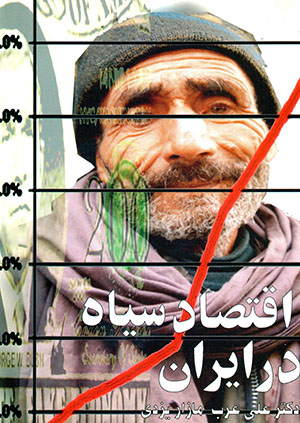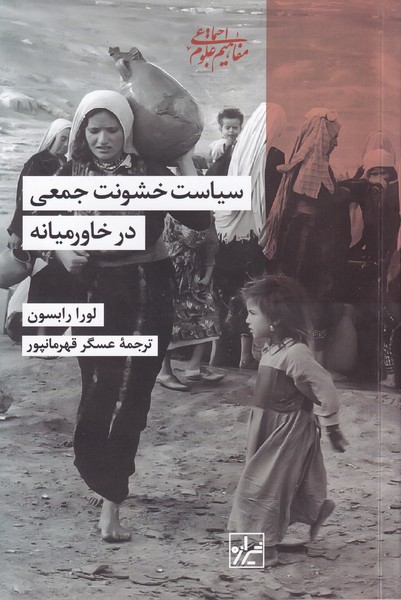حدود نئولیبرالیسم فارسی
Ḥudūd-i Ni'ulībiralīsm
16٫59 £
اشتراکگذاری
Wishlist
عنوان اصلی:
The Limits of Neoliberalism
شابک:
9786225346338
مترجم:
hasan fesharaki
ناشر:
Shirazih
گروه سنی:
بزرگسال
صفحات:
336
وزن:
306 g
ابعاد:
14 x 21 x 3 cm
جلد کتاب:
شومیز
"Brilliant... explains how the rhetoric of competition has invaded almost every domain of our existence." - Evgeny Morozov, author of To Save Everything, Click Here "A sparkling, original, and provocative analysis of neoliberalism... a distinctive account of the diverse, sometimes contradictory, conventions and justifications that lend authority to the extension of the spirit of competitiveness to all spheres of social life." - Professor Bob Jessop, University of Lancaster
"In a world that seems to lurch from one financial crisis to the next, this book questions both the sovereignty of markets and the principles of competition and competitiveness that lie at the heart of the neoliberal project." - Professor Nicholas Gane, University of Warwick Since its intellectual inception in the 1930s and its political emergence in the 1970s, neo-liberalism has sought to disenchant politics by replacing it with economics. This agenda-setting text examines the efforts and failures of economic experts to make government and public life amenable to measurement, and to re-model society and state in terms of competition. In particular, it explores the practical use of economic techniques and conventions by policy-makers, politicians, regulators and judges and how these practices are being adapted to the perceived failings of the neoliberal model. By picking apart the defining contradiction that arises from the conflation of economics and politics, this book asks: to what extent can economics provide government legitimacy?
more
زمانی که در سال ۲۰۰۸ دولتهای آمریکا و اروپا بیش از هزار میلیارد دلار برای پوشش بدهی بانکهای خصوصی در اختیار آنها قرار دادند، تردیدی نماند که نئولیبرالیسم نه دشمن دولت بزرگ و مداخلهگر است و نه رقیب قسمخوردهٔ کینزگرایی. از این رو پرسش از چیستی نئولیبرالیسم اوّلین پرسشی بود که پس از این بحران پیش کشیده شد و پرسش دوّم چرایی ادامهٔ بقای این مکتب علیرغم شکستی چنین آشکار. کتاب حاضر سعی و تلاشی است برای پاسخ به این هر دو پرسش. نویسنده نشان میدهد که چنانچه صورتبندیهای مختلف این مکتب، ویژگیهای اصلی آن را حفظ کنند که عبارت باشند از منکوب کردن سیاست توسط اقتصاد، توجیه نابرابریهای اجتماعی و تعمیم الگوهای سپهر اقتصادی به تمامی سایر سپهرهای وجودی، نئولیبرالیسم میتواند هم به دست نامرئی بازار متکی بماند و هم از دست مرئی مداخلهٔ دولت منتفع گردد. او همچنین استدلال میکند که پاسخ به پرسش بقای نئولیبرالیسم پس از بحران سال ۲۰۰۸ را باید در شیوهٔ تبلیغ و ترویج این اندیشه دید که از سویی متکی است بر ایجاد فضاهای خاصّ خود همچون اندیشکدهها و اتاقهای فکر و از سوی دیگر، برخورداری از پشتیبانی مرشدهایی که فارغ از موفقیت یا شکست، همواره در تلاش برای تأثیرگذاری بر رهبران سیاسی و مسئولان سیاستگذاری میباشند.
more



















